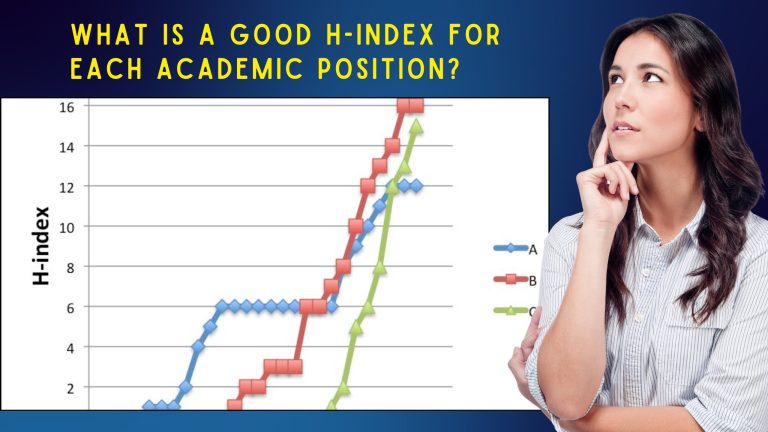Scopus vs. Web of Science: Which Conference Indexing Is Better?

When publishing research, academics and researchers often look for the best indexing services to maximize their work’s visibility, credibility, and citation potential. Two of the most reputable indexing databases are Scopus and Web of Science (WoS). But which one should you choose for conference indexing? This detailed comparison will help you understand their differences and guide you in making the right decision.
What Is Scopus Indexing?
Scopus is one of the largest abstract and citation databases of peer-reviewed literature. It is managed by Elsevier and covers a broad range of subjects, including science, technology, medicine, social sciences, and humanities.
Key Features of Scopus:
- Wide Coverage: Scopus indexes more than 27,000 peer-reviewed journals, conference proceedings, and books.
- Scopus Quartiles (Q1, Q2, Q3, Q4): Journals are classified into quartiles based on their impact factor, with Q1 being the most prestigious. (Learn more about Scopus Quartiles)
- Regular Updates: Scopus continuously evaluates journals, ensuring that only high-quality publications remain indexed.
- Scopus Indexed Conferences: Many conferences indexed in Scopus help researchers gain more citations and academic recognition.
- Open Access Options: Researchers can also publish in Scopus-indexed open-access journals, some of which allow free publishing. (Find out how to publish in Scopus for free)
What Is Web of Science (WoS) Indexing?
Web of Science (WoS), managed by Clarivate Analytics, is another prestigious indexing database. It offers access to high-impact research from science, social sciences, arts, and humanities.
Key Features of Web of Science:
- Selective and Prestigious: WoS indexes only high-impact journals and conference proceedings that meet strict quality criteria.
- Impact Factor Calculation: WoS is responsible for calculating Journal Impact Factors (JIF), a crucial metric for academic publications.
- Conference Proceedings Citation Index (CPCI): WoS has a dedicated index for conference papers, ensuring that conference research gets recognized.
- Author and Citation Tracking: Provides tools to analyze researcher performance, track citations, and identify top publications.
- Highly Regarded in Academic Rankings: Universities and funding agencies often prioritize WoS-indexed papers for grants and promotions.
Scopus vs. Web of Science: Key Differences
| Feature | Scopus | Web of Science |
|---|---|---|
| Publisher | Elsevier | Clarivate Analytics |
| Journal Coverage | ~27,000 journals | ~21,000 journals |
| Subject Areas | Multidisciplinary | Selective high-impact journals |
| Citation Analysis | Strong citation metrics | Impact Factor & h-index |
| Conference Indexing | Broad coverage of conferences | Focus on high-quality conferences |
| Accessibility | Subscription-based | Subscription-based |
| Open Access Support | Supports open-access journals | Limited open-access options |
Which One Is Better for Conference Indexing?
Choosing between Scopus and Web of Science depends on your research goals:
- If your priority is visibility and wide coverage, Scopus-indexed conferences might be the best choice. Scopus indexes thousands of international conferences, ensuring that your research reaches a broader audience.
- If you aim for prestige and high-impact recognition, Web of Science (WoS) indexed conferences are more suitable. WoS conferences are more selective and usually associated with top-tier academic institutions.
- If you are targeting UGC-approved research, it’s essential to understand how UGC vs. Scopus indexing works. (Read more about UGC vs. Scopus)
Which Indexing Helps with Career Growth?
Both Scopus and Web of Science play a crucial role in academic promotions, funding, and career advancements. However, their impact varies based on discipline and institutional preferences:
- Scopus is often preferred in multidisciplinary research areas, offering a more extensive network of indexed conferences and journals.
- Web of Science is highly respected for its strict indexing criteria, making its indexed publications more prestigious in some academic fields.
- For Ph.D. candidates and early-career researchers, publishing in Scopus-indexed journals is often a faster way to gain citations and credibility. (Check the best Scopus-indexed journals in 2025)
Final Verdict: Which One Should You Choose?
Ultimately, the choice between Scopus and Web of Science depends on your research needs and academic goals:
- For fast indexing and broader visibility, go with Scopus.
- For high-impact and prestigious recognition, choose Web of Science.
- For conference papers, check if the event is indexed in either database before submission.
Both databases are valuable for academic success, and having research indexed in either of them significantly enhances your credibility. If possible, aim to publish in journals and conferences indexed in both Scopus and Web of Science to maximize your reach and impact.
Related Articles:
- How to Publish in Scopus for Free
- Scopus Quartiles (Q1, Q2, Q3, Q4) Explained
- Best Scopus-Indexed Journals in 2025 – Submit Research
- UGC vs. Scopus: Which One is Better?
1. Is Scopus better than Web of Science?
Both have their advantages. Scopus covers more journals and conferences, making it better for visibility, while Web of Science is more selective, making it better for prestige.
2. Are all Scopus-indexed journals of high quality?
Not necessarily. Some lower-ranked Q3 and Q4 Scopus journals may have less impact. It’s best to aim for Q1 or Q2 Scopus journals for better recognition. (Learn more about Scopus Quartiles)
3. Can I publish in Scopus for free?
Yes, some Scopus-indexed open-access journals allow free publication. (Find out how to publish in Scopus for free)
4. Do universities prefer Web of Science over Scopus?
Some universities prioritize Web of Science for high-impact research, while others accept both. It depends on the institution’s ranking policies.
5. How do I check if a journal is indexed in Scopus or Web of Science?
You can verify journal indexing through:
- Master Journal List on Web of Science (Clarivate Analytics)
- Scopus database search on Elsevier’s website






